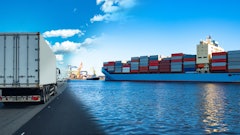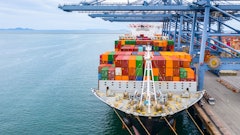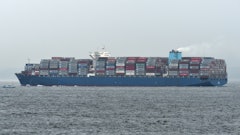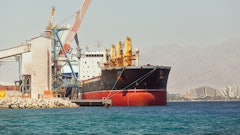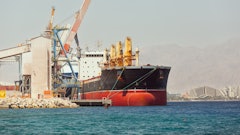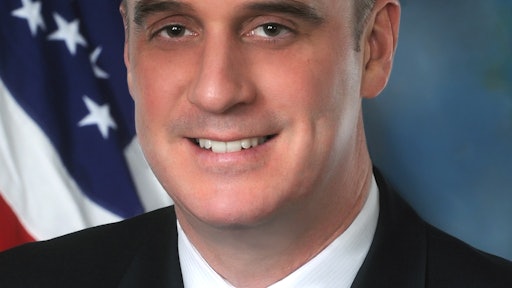
Commissioner William P. Doyle of the U.S. Federal Maritime Commission voted in favor of requesting additional information (RFAI) from The Ocean Alliance parties, effectively halting the agreement until the filing parties answer the questions proposed in the RFAI, according to marinelink.com. Once those questions are answered and filed with the Commission, a new 45-day clock commences.
The Ocean Alliance agreement was filed with the Commission on July 15, 2016, and would have become effective on August 29, 2016, absent Commission action. The Ocean Alliance parties, which includes of COSCO Container Lines Company, CMA-CGM (with APL), Evergreen Marine Corporation and Orient Overseas Container Line (OOCL), are looking to go live with the alliance in or about April 2017.
“I pay special attention to competition matters especially to small businesses, downstream participants and the upstream – supplier and vendor markets,” Commissioner Doyle said. “We’ve been down this road before with language proposed but not implemented by the P3 Alliance and the language in the existing 2M Alliance (Maersk and MSC). I’d like to see fair dealing and transparency in how the parties handle negotiations with third parties, suppliers, small businesses, and other service providers. Using their proposed buying power through proposed joint purchasing agreements could harm both downstream and upstream participants.”
The 2M Alliance Agreement provides safeguards for U.S. third-parties such as marine terminal operators, stevedores, tug operators and other providers or suppliers. The 2M parties must negotiate independently and enter into separate contracts with the third parties.
To read more, click here.
Editor's Insight: This action increases the likelihood that carriers will negotiate with third party service providers individually and transparently, should the Ocean Alliance come to fruition. Whether it will impact shippers’ rates significantly remains to be seen. Food shippers have expressed concern that ocean vessel alliances could impact their rates.
When the Ocean Alliance was announced back in April, Tyson Foods Inc., which exports more than 50,000 ocean containers of frozen food and other products annually, asked the U.S. Senate Commerce Committee to press the FMC for a more thorough review of foreign carrier alliances to ensure that their actions do not result in a logistics network that adds more truck trips and congestion to an already overloaded port infrastructure. 8-25-16 By Elliot Maras








